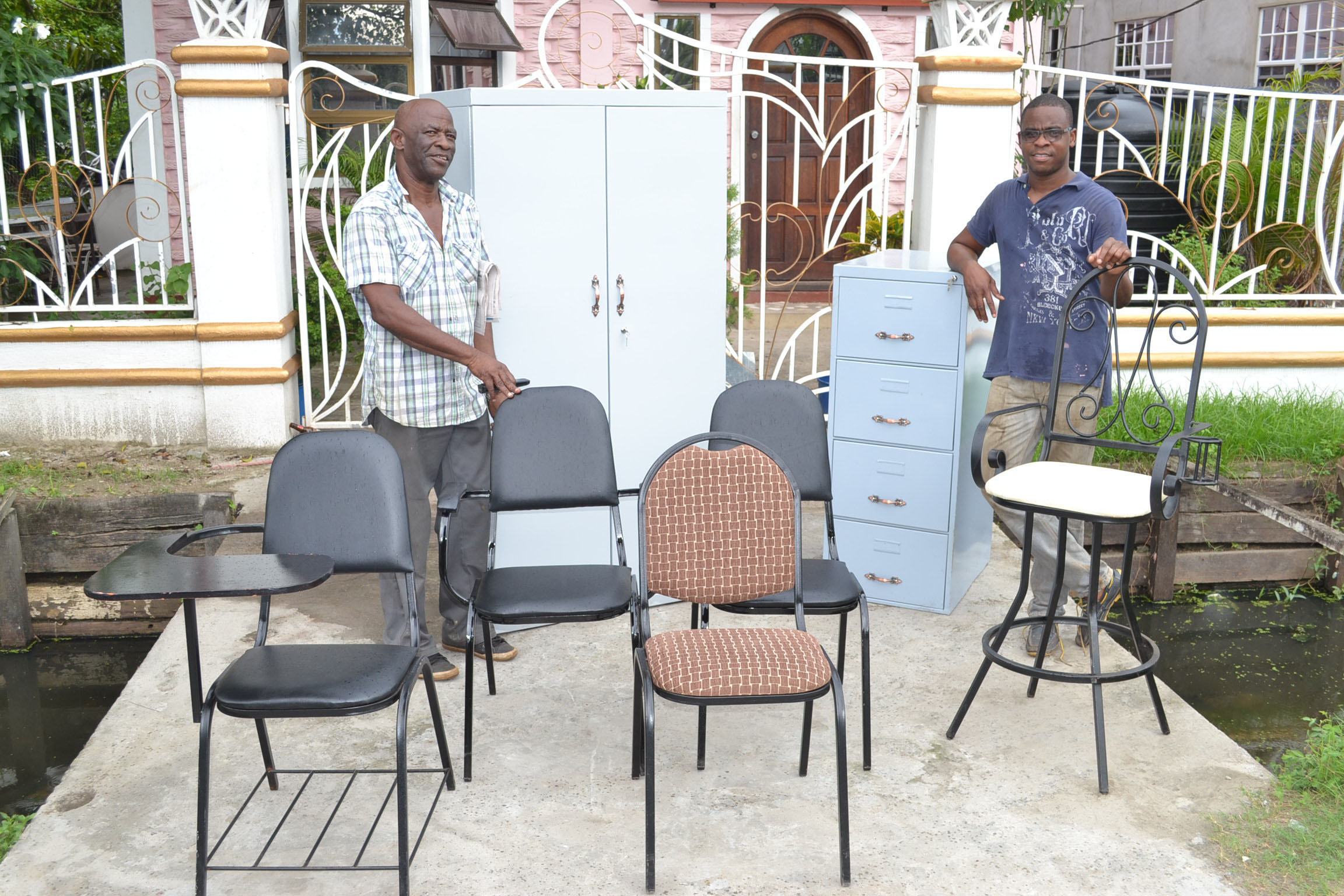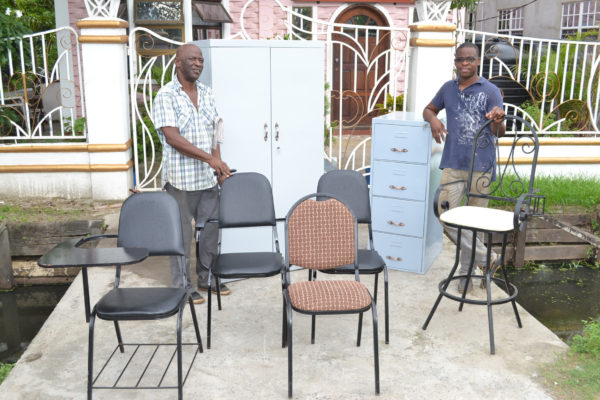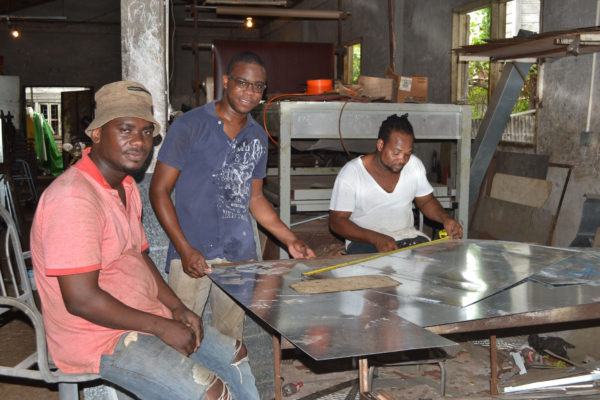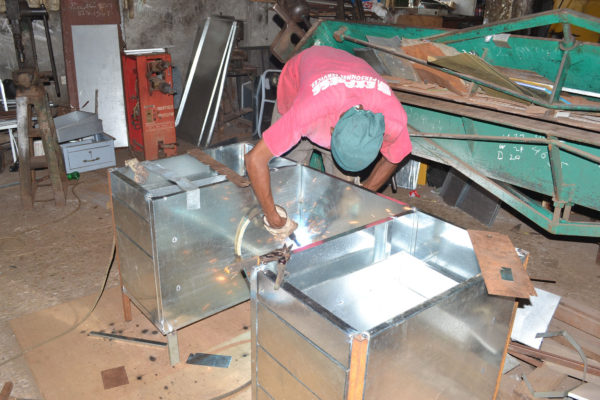Orders for $3 million worth of his company’s fabricated steel furniture resulting from his appearance at this year’s GuyExpo may not amount to a major breakthrough for his business, but it is sufficient to persuade Ivor Bunbury that Steel Pro, his 33 Victoria Road Plaisance furniture-making enterprise can still hold its own in a challenging business environment.
Steel Pro is one of the manufacturing sector’s survivors from the era of the 1970s that has transformed itself from a mostly labour-intensive operation into a modern, automated workshop. Bunbury says the transformation was due to the support of GuyMida, the forerunner to GO-Invest. The agency, he said, facilitated loans to his business from GaiBank, which he used to equip the factory with modern equipment.
To demonstrate how far he has come, Bunbury reflects on the days when an absence of machinery meant that steel had to be bent virtually manually and when it took an entire week to make 5 chairs. These days he produces 30 chairs over the same period and bending and cutting are done by machines.
It is a long way from his apprenticeship to a Polish tradesman shortly after he left school, not dreaming, perhaps, that he would, one day, establish a business of his own.
Other things have changed too. The market has transformed from the era when the scarcity of foreign exchange dictated that imports be minimized to the contemporary era when a surfeit of imports compete aggressively with locally manufactured goods for a share of what is still a modest market.
During those early days, Bunbury says, Steel Pro enjoyed a more than adequate market share, cashing in mainly on the demand in the traditional public sector for constant supplies of office furnishing.
All that has changed. Foreign taste has changed the company’s fortunes, though cheap imports have failed to find favour over Steel Pro products. Accordingly, the company has survived and grown. The firm employs eight trained persons, most of them from Plaisance.
But there have been other challenges too. The predominance of the market economy has meant that the state-supported lending infrastructure which, hitherto, has allowed for the creation of enterprises like Steel Pro, has been replaced by a borrowing regime comprising commercial banks requiring market rates of interest. That, coupled with a more liberal contemporary regime of foreign imports has meant that Steel Pro has had to work hard to improve its efficiency over the years. The transformation has taken place primarily over the past 5 years.
Raw material – mostly the hollow steel and fabric for upholstery – are purchased from local merchants and the recent ‘season’ of lower oil prices has meant that the company has enjoyed reduced steel prices.
In May, Steel Pro put in its fourth appearance at GuyExpo. Bunbury says that the company has not always been able to afford the expenditure associated with participation. Securing space at Sophia, preparing product for display and paying staff to man the booth could cost more than half a million dollars in circumstances where the level of return is uncertain.
The orders that he has secured this year for bar stools, chairs and cabinets have come primarily from a Berbice client who is about to venture into the entertainment business. In the period ahead Steel Pro will be working “day and night” to fulfil those orders, he said.
Steel Pro soldiers on in an environment which Bunbury says still remains far from ideal for the growth of a thriving manufacturing sector. High electricity costs remains the bane of its existence. His own electricity bill is usually in the region of $200,000 monthly. That kind of outlay can be worrying for a business which Bunbury says is worth no more than $20 million.
Ever mindful to maintain a competitive edge, Steel Pro, Bunbury says, seeks to keep its prices as close to the floor as cost of production permits.
The company’s king-size fabricated beds cost $65,000 each; queen-sized $45,000 each and regular double beds, $35,000 each. Office chairs cost $6,500 each and filing cabinet prices begin at $10,000. In circumstances where there is no financial space for a showroom and an elaborate display, product is made directly to order.
Two of Bunbury’s three sons are part of the Steel Pro operation while his wife rounds off the modest family business running a modest catering enterprise.








